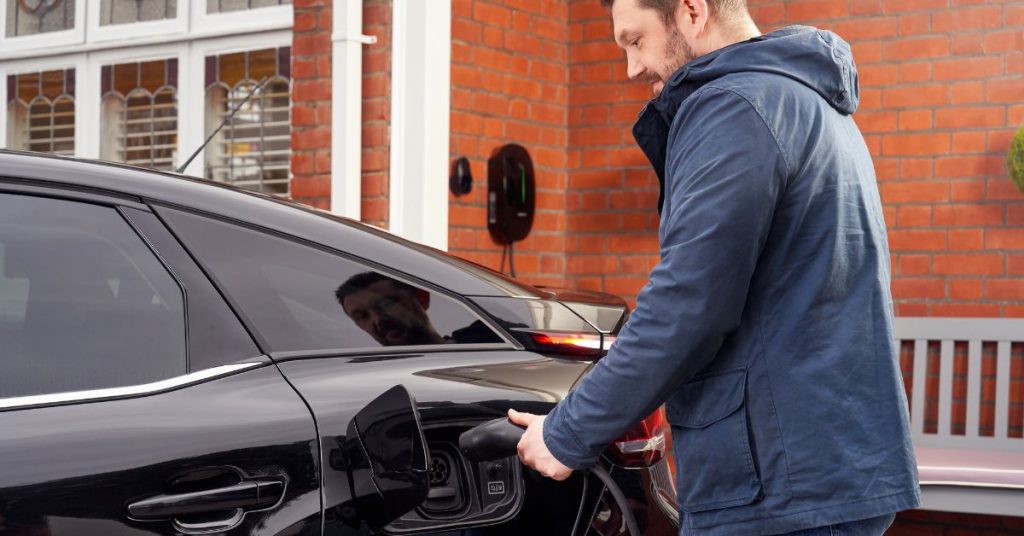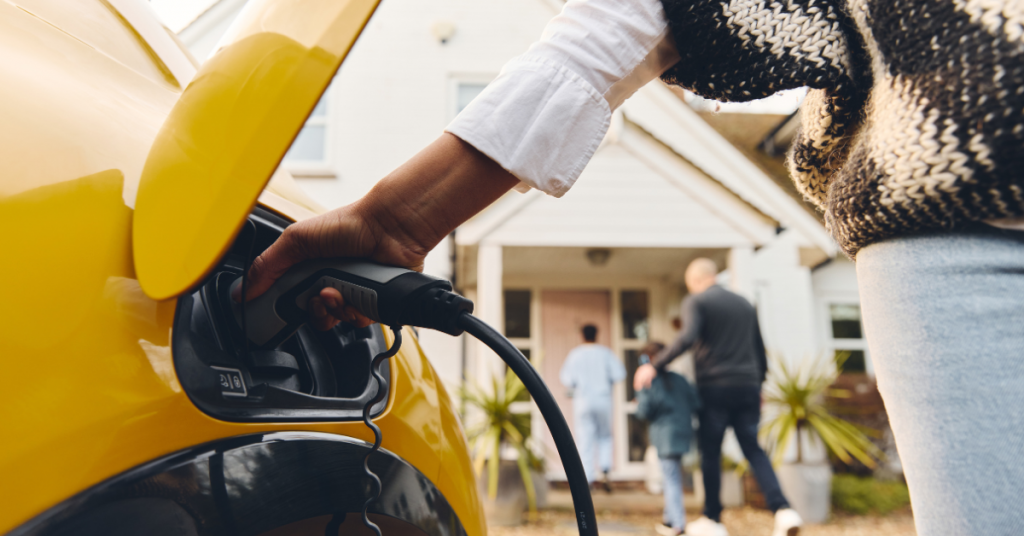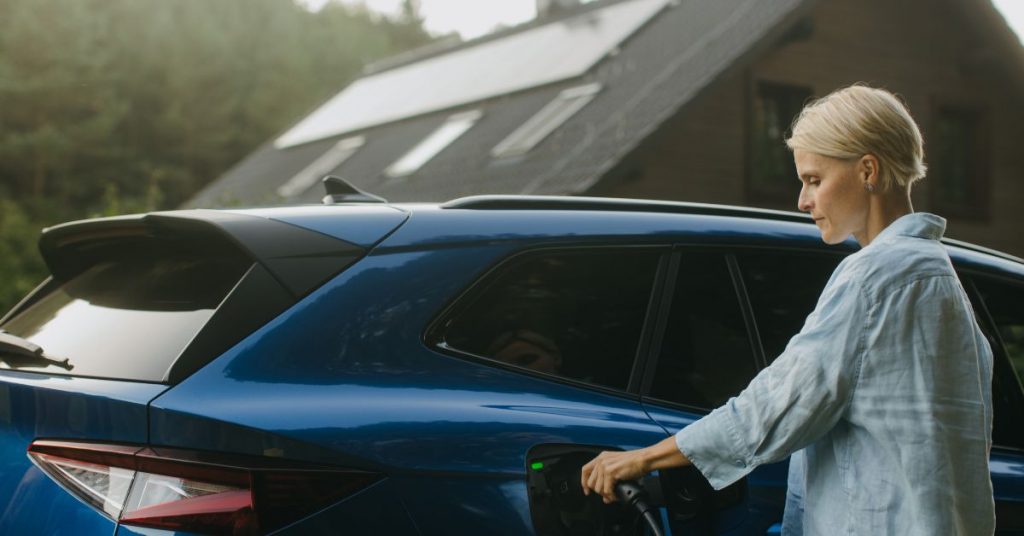
By James Morris
Electric vehicles have many benefits, but one of the biggest if you have home charging is just how cheap they can be to run. The efficiency of EVs and the price of electricity, even after the UK cost of living crisis, makes the cost per mile much less than any internal combustion-powered car. And it’s even cheaper if you can make use of off-peak overnight rates. But exactly how much does it cost to charge an EV at home? Let’s look at the details.
Charging an EV at Home versus Petrol and Diesel
At the time of writing this article, a typical domestic electricity rate was around 24-26p per kWh from leading UK energy suppliers. Although some EVs can manage 4 miles per kWh, and some inefficient ones just 2 miles per kWh, the average is somewhere in between, about 3 miles per kWh. That means charging your EV on a typical 26p per kWh domestic electricity supply will cost you under 9p per mile. EVs have batteries anywhere between 20kWh to over 100kWh, so a full charge will cost between £5.20 and £26.
A typical petrol car in the UK delivers an average 36mpg, while a typical diesel will offer 43mpg. When we wrote this article, petrol was £1.36 per litre, while diesel was £1.44. That equates to 17p per mile for a typical petrol car and 15p per mile for diesel. So already you are almost halving your personal transportation running costs by choosing an EV and charging at home. Depending on how many miles you do per week, this could rapidly offset the higher purchase price and cost of installing a home charger.
Even Cheaper Charging Overnight
But when you factor in off-peak EV charging tariffs, the numbers swing even more favourably towards electric cars. There are several options for this, but as examples at the time of writing, Octopus Go provides a tariff of 8.5p per kWh for five hours between 12:30am and 5:30am, while Intelligent Go provides at least six hours of 7p per kWh from 11:30pm to 5:30am. E.ON NEXT’s NextDrive Fixed V5 offers seven hours of 6.7p per kWh from midnight to 7am. The day-time rates are a little higher with these tariffs than a regular contract, but if you’re an EV owner and regular driver, the reduced night-time rates will more than offset this for your overall household spend.
The best rates of all come with intelligent charging tariffs, which require a compatible car or smart charger, such as the Humax Home EV Charger. These offer some of the lowest off-peak rates, but best of all, you can get more hours at this rate as well. The energy supplier will track the cost of electricity on the grid dynamically and charge your car when it’s cheapest. You get a guaranteed range of cheap power overnight, but there may be additional slots as well, which all your household electrical devices can benefit from.
Assuming 3 miles per kWh again, with one of these off-peak tariffs, your car will now cost you from 2.2 to 2.8p per mile. Even if your EV has a 100kWh battery, it will be as little as £6.70 to fill and provide over 300 miles of driving. At this rate per mile, trips to the shops in an EV are significantly cheaper than public transport. The school run would cost a few pence in energy. And all the while you can enjoy zero emissions, quiet and smooth driving, plus the many other benefits of an EV.
Home Charging is the Key to Cheap EV Ownership
To show the value of being able to charge at home, it’s worth comparing these domestic rates to public charging. In November 2024, the average cost for slower public chargers including street chargers was around 57p per kWh. Ultra-rapid chargers (offering over 150kW rates) were averaging 80p per kWh. Tesla Superchargers are considerably cheaper for Tesla owners, costing between 39p and 51p per kWh depending on time of day. Using the 3 miles per kWh figure again, an average non-Tesla EV will cost between 19p and 27p per mile to charge publicly, which isn’t cheaper than a petrol or diesel car, although a Tesla will be on par. If you still primarily charge at home, though, it will be easy to absorb the occasional more expensive public session.
There is a lot of money to be saved from owning an EV. They are still more expensive to buy than equivalent petrol or diesel cars. But maintenance costs will be lower and the price per mile considerably less. Home charging is the key factor, though. Even without a cheap overnight tariff, you could halve your per mile personal transportation costs. But with an overnight plan, particularly an intelligent one, the savings are exceptional, making home charging the killer feature that could justify your transition to driving an EV on its own.
About the author
James Morris has 30 years of experience reporting on technology and the automotive industry. He runs UK electric vehicle website WhichEV.net and teaches journalism at City St George’s, University of London.


